The 1930s - Part 2 - The Man Passing By: KTRH Interviews
One of the most well-known developments in Houston radio in the 1930s was the launch of the Vox Pop program on KTRH in November, 1932, a man-in-the-street interview program done live, which was to go national in 1935 and have a long run on national radio.
The Chronicle reported on its radio page on Friday, November 4th that WABC, New York, the CBS station (there was no ABC at the time) had aired a man-in-the-street program in which 49 New Yorkers were polled on how they were going to vote in the coming election. Ted Husing, one of the most famous early radio announcers, had conducted the program. The story said that WABC was ‘pretty well satisfied’ with the results of the first broadcast and planned ‘to go further into this activity.’
The idea was picked up by KTRH very quickly. On Sunday the 6th, the Chronicle reported that Harry Grier, Program Director of KTRH, had said that plans were complete for the ‘Vox Populi’ program to air at 9:15pm Monday evening, the day before the election. The ‘forgotten man,’ the ordinary American, was going to be given a chance to speak his mind. The microphone would be set up at Main at Texas, just outside the KTRH studios in the Rice Hotel.
There was another story in the Chronicle the next day, saying that politicians and radio men were eagerly awaiting the results of the first broadcast from the sidewalks of Houston. The listing for the program at 9:15pm was for ‘The Man Passing By: KTRH Interviews.’
There was no review in the paper the next day but the following Monday, the Chronicle’s radio page took note of the second broadcast, set for that evening at 9:15pm at the same location, when the topic of Prohibition would be broached and ordinary Houstonians offered the chance to state their views. Jerry Belcher and Harry Grier would man the microphones.
The review the next day ran as long as the radio listings themselves and made it clear KTRH had a hit on its hands and Houstonians had a lot to say about Prohibition.
The following week the station declared that the success of the program had prompted its continuation as a weekly feature. The program was moved up to 6:45pm and the topic was to be the question of who should be the next mayor of Houston. The location was not to be given out until just before show time to be sure of catching casual passersby. The listing on the daily radio schedule in the paper was for ‘Inquiring Reporter: Broadcast from Houston Streets’ from 6:45 to 7:15pm. According to the followup report on the 22nd, the location was actually not revealed until the end of the show to prevent ‘stuffing the mike’ and Houstonians had wanted to talk about a lot more than just who the next mayor should be; Prohibition came up again as did taxation.
On the 28th the ‘Inquiring Reporter’ had many questions on his mind: repaying the war debt, what do you want for Christmas, the Southern custom of shooting fireworks on Christmas, and others. One man interviewed said there out to be a law against radio crooners; another said ties should not be given as Christmas presents - the man should be allowed to pick his own. Several young ladies interviewed expressed the hope of receiving a fur jacket for Christmas plus a Rolls Royce; one admitted she’d be happy with a Cadillac. Returning to the issue of Prohibition, several said they’d like to see the return of beer gardens on Main Street.
Sometimes a person was asked only one question but Jerry Belcher, who was to stay with the program when it went national, sometimes engaged participants in longer exchanges. One time he recognized a local politician on his way home, called him over to the mike and asked him about several topics ranging from his favorite fishing holes to highway construction.
According to the Encyclopedia of American Radio by Lackmann, the show was picked up by NBC in 1935 for 4 years, then ran on CBS for several years before spending its last year on network radio on ABC in 1947-48. Although the term Vox Pop had been used in the very first Chronicle story about the program, the term was not adopted as the name of the program until some time later. According to Swartz and Reinehr in the Handbook of Old-Time Radio the program was originally called Sidewalk Interviews on NBC; the name of the network show was changed to Vox Pop in 1938.
Parks Johnson and Jerry Belcher were associated with the program when it went to the network; Belcher was apparently replaced shortly thereafter. Johnson, an advertising man, has been credited with the creation of the program but his name does not appear in any of the earliest stories in the Chronicle that I have seen. But Johnson stayed with the show throughout its life and kept an impressive record of the show and donated his materials to the University of Maryland. You can explore much more about Vox Pop here. As mentioned in the Statement of Purpose on this blog, this is an ongoing research project and there are many gaps in what I know but at this time, it seems the national version of Vox Pop may never have aired in Houston. KTRH continued to produce its own local version of the show which continued to air on Tuesdays; the national version of the show moved around several times. Contrary to what is stated on the linked site there was no indication in the early Chronicle stories on the program that the questions were trivia questions or that there were cash prizes nor any mention of that in Lackmann or Swartz & Reinehr.
In a 1959 interview with Chronicle Radio/TV Editor Howard Stentz, Lee Segall, then a respected Dallas broadcaster, claimed it had been under his tutelage that the program changed from asking questions of opinion to matters of common sense and trivia. Segall also claimed it had been Johnson and himself who sold the show to the network but Segall’s name did not appear in the earliest stories. Segall was a Houston advertising executive and broadcaster in the 1930s and 40s who represented Metzger's Dairies, a long time sponsor of the local production. The program appeared in the listings in later years as Metzger's Vox Pop and Segall served as producer and sometime host. Segall is credited with the creation of a replacement show in 1937 that was also to go on to the networks and arguably be an even bigger hit than Vox Pop, spawning a spin-off and a short-lived TV version in the 1950s although its origins on Houston radio seem to have been completely lost to history. There will be more on that in another section of this chronology of the 1930s.
By June 30, 1934, according to the official list of the FCC, the Houston radio dial included only KPRC, licensed to the Houston Printing Co. with transmitter in Sugar Land operating at 920 with 2500 watts, KTRH, 1120, operating with 500 watts with 500 watts additional experimental, and KXYZ, at 1440 with 250 watts. There was only one station still on the air in Galveston, George Roy Clough had changed the call letters of his station to KLUF and it operated with 100 watts at 1370. Up in Austin, KUT, operated by the KUT Broadcasting Co., had changed its call letters to KNOW and operated at 1500 kc with 100 watts.


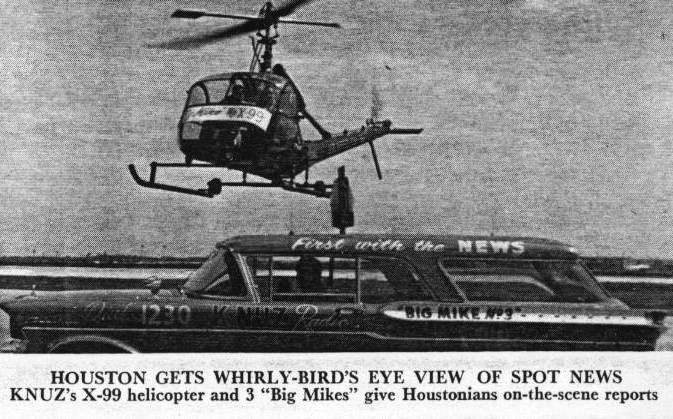
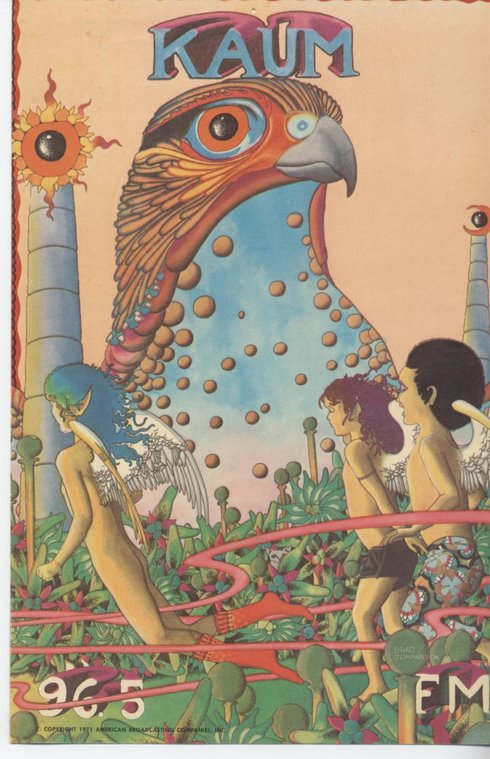
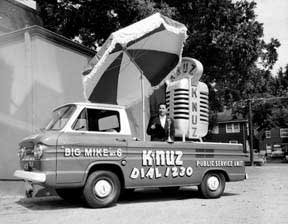


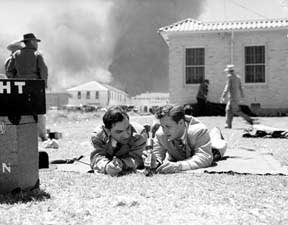
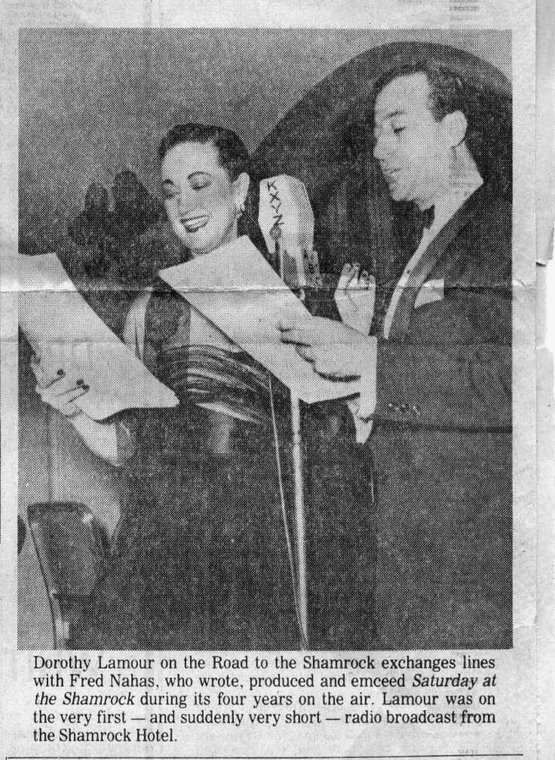
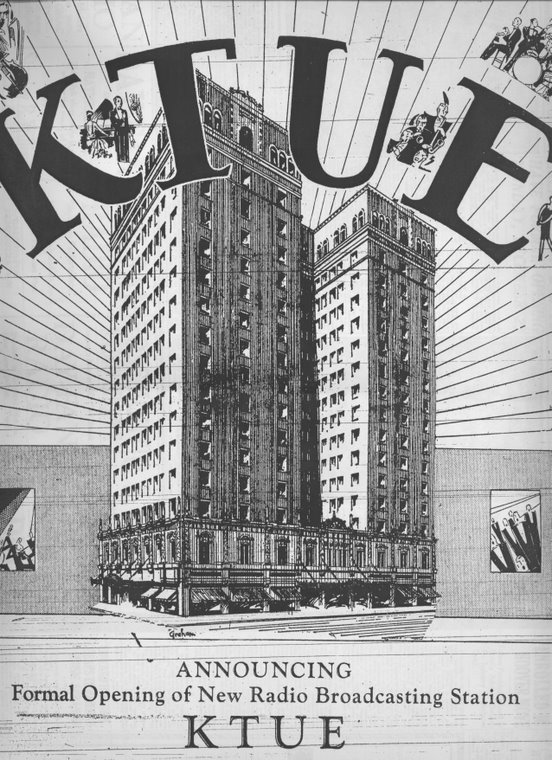
1 comment:
My name is Michael Henry and I am with the Library of American Broadcasting, a research library at the University of Maryland devoted to the history of radio and television broadcasting.
Thank you for linking our site to your article. The Vox Pop Collection is one of the prized collections in our holdings. Parks Johnson was such a meticulous record keeper that the collection gives great insight into the show and into Houston radio. We'll be happy to send you more information from the collection. You can reach me at mlhenry@umd.edu
Of course we are always searching for more information about the show's Houston years as well as the history of KTRH and the careers of Parks Johnson, Jerry Belcher, and Harry Grier, so any information you can share would be greatly appreciated.
sincerely,
Michael Henry
Library of American Broadcasting
Post a Comment